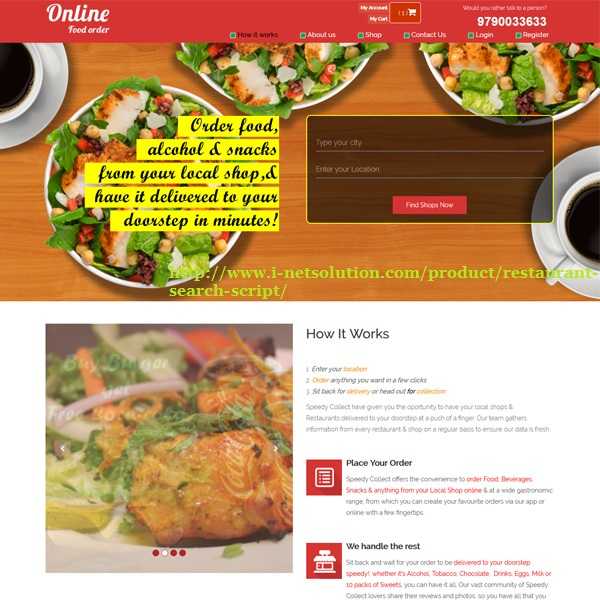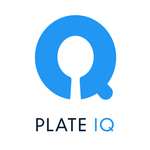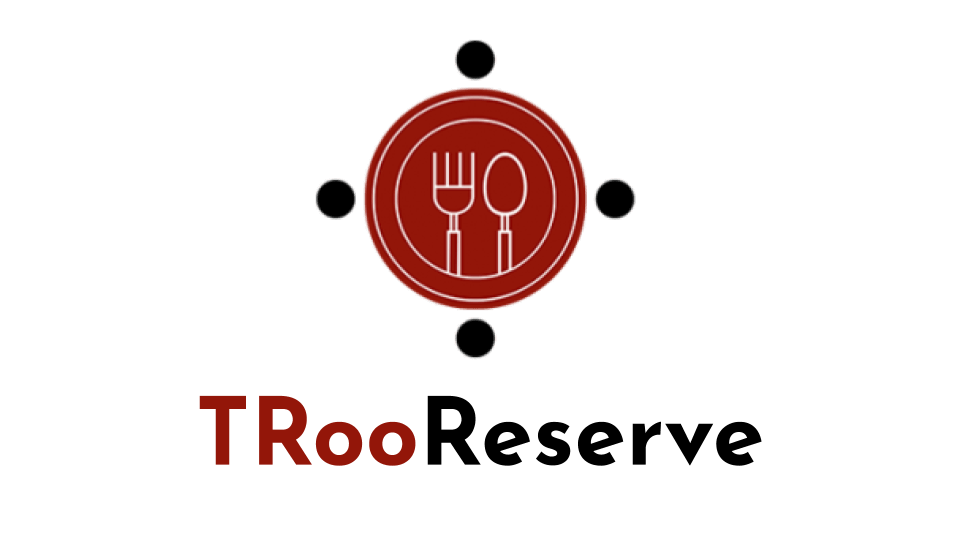Description

Advanced Just Eat clone

ATS Android POS
Comprehensive Overview: Advanced Just Eat clone vs ATS Android POS
Creating a comprehensive overview of specific software products requires understanding each one's primary functions, target markets, market share, user base, and distinguishing features. I'll break down each product based on these aspects:
1. Advanced Just Eat Clone:
a) Primary Functions and Target Markets
- Functions: An Advanced Just Eat Clone is a software solution designed to replicate the functionalities of the popular online food delivery service, Just Eat. It typically includes user interfaces for consumers, restaurants, and delivery personnel. Core features may include restaurant listings, menu browsing, order placement, payment gateways, and delivery tracking.
- Target Markets: This product targets entrepreneurs and startups looking to enter the online food delivery market. Potential clients include local food delivery businesses and aggregators who aim to offer a competitive service under their own brand.
b) Market Share and User Base
- This type of software solution is characterized by a fragmented market, with numerous clones available, each holding a minimal market share. There isn't a single dominant player in this space compared to the original services like Just Eat, Uber Eats, or DoorDash.
- User base varies greatly and is largely dependent on how effectively a business can implement and localize the clone software within its target geographical area.
c) Key Differentiating Factors
- Customization: The degree of customization allowed by the software is a significant differentiator. Some clones offer high customization to adapt to specific business needs.
- Scalability and Integration: The ability to scale as the business grows and integrate with existing systems (e.g., CRMs, ERP software) is critical.
- Support and Maintenance: Offering extensive customer support and software maintenance can set one clone apart from another.
2. ATS Android POS:
a) Primary Functions and Target Markets
- Functions: ATS Android POS systems are designed to simplify point-of-sale operations using Android devices. They typically include functions like sales processing, inventory management, customer data handling, and analytics/reporting.
- Target Markets: Retail businesses, restaurants, and service enterprises that need a cost-effective, mobile, and easy-to-use POS system.
b) Market Share and User Base
- POS systems have a competitive market with significant consolidation among larger players like Square, Toast, and Clover. The market share of ATS Android POS would likely be minor compared to these leaders, targeting small to medium businesses seeking a more affordable or mobile solution.
- User base depends on the region and specific niche that the ATS system targets.
c) Key Differentiating Factors
- Platform Flexibility: Running on Android allows for lower hardware costs, appealing to cost-sensitive customers.
- Modular Features: The ability to add or remove modules based on business needs can be a compelling feature.
- Ease of Use: User-friendly interfaces and uncomplicated onboarding processes can appeal to small businesses without extensive technical resources.
3. Drink-IT CRM:
a) Primary Functions and Target Markets
- Functions: Drink-IT CRM is typically tailored for beverage companies, offering solutions for sales force automation, marketing, customer service, and relationship management specifically within the beverage industry.
- Target Markets: Beverage producers and distributors who require industry-specific CRM capabilities. This includes breweries, wineries, and large beverage distributors.
b) Market Share and User Base
- As a niche CRM solution, Drink-IT CRM likely commands a smaller, more specialized market share compared to general CRMs like Salesforce or HubSpot.
- The user base is specialized, with focus on businesses within the beverage sector that appreciate tailored solutions over generic CRM systems.
c) Key Differentiating Factors
- Industry Focus: A specialized focus on the beverage industry sets it apart from other CRMs that are industry-agnostic.
- Integration Capabilities: Integration with other beverage management software like ERP systems used in production and distribution.
- Tailored Features: Features designed specifically for beverage industry processes, such as batch tracking, compliance management, and sales incentives, provide added value over generic CRMs.
Conclusion
These products serve different markets with distinct user needs. The Advanced Just Eat clone targets online food delivery with emphasis on customization and deployment flexibility. ATS Android POS offers mobile, cost-effective point-of-sale solutions for small to medium businesses. Drink-IT CRM delivers industry-specific functionality for beverage companies. While market shares and user bases vary, each product's differentiation is rooted in its customization, integration capabilities, and the specificity of its features aligned with target industry needs.
Contact Info

Year founded :
Not Available
Not Available
Not Available
Not Available
Not Available

Year founded :
Not Available
Not Available
Not Available
Not Available
Not Available
Feature Similarity Breakdown: Advanced Just Eat clone, ATS Android POS
To provide a feature similarity breakdown for the Advanced Just Eat clone, ATS Android POS, and Drink-IT CRM, we should consider the different core functionalities these platforms typically offer, their intended users, and how they operate within their respective industries. Here's a detailed analysis:
a) Core Features in Common
While these three products serve different purposes—order management for restaurants, point of sale systems, and customer relationship management in beverage logistics—they may share some common technological and business process features:
-
Order Management:
- Advanced Just Eat Clone: Primarily focused on accepting and managing customer food orders online.
- ATS Android POS: Facilitates order taking in a physical location, with inventory updates and receipt generation.
- Drink-IT CRM: Integrates with orders to help track customer preferences and history.
-
Reporting and Analytics:
- All three systems will typically provide some level of reporting functionality, whether it's sales reports, customer insights, or inventory turnover data.
-
Payment Processing:
- Advanced Just Eat Clone: Online payment integrations.
- ATS Android POS: In-person payment acceptance with card readers or mobile payments.
- Drink-IT CRM: May include invoicing and payment tracking for B2B transactions.
-
Customer Management:
- Basic database functionalities for storing customer information, although the depth varies significantly between the CRM and the other two.
b) User Interface Comparison
Given the separate domains, user interface designs will likely vary:
-
Advanced Just Eat Clone:
- Typically web and mobile app interfaces designed for a smooth user experience in ordering food. User-friendly navigation, focused on visual appeal and ease of use for end customers.
-
ATS Android POS:
- A touchscreen-based UI optimized for quick transaction processing. Interfaces often emphasize large buttons, ease of use, and quick learnability for cashiers and servers.
-
Drink-IT CRM:
- Generally offers a more detailed, information-dense interface designed for desktop or tablets, customized for sales teams or customer service personnel focusing on data management and analysis.
c) Unique Features
Each product is likely to have unique features tailored to its specific industry:
-
Advanced Just Eat Clone:
- Unique integrations with delivery services, loyalty programs, and restaurant-specific menu management.
- Real-time order tracking for customers.
-
ATS Android POS:
- Real-time integration with inventory systems and support for complex transaction types (e.g., split payments, discounts).
- Employee management features such as shift scheduling and performance tracking.
-
Drink-IT CRM:
- Advanced customer profiling and segmentation targeting B2B clients.
- Specialized features for managing beverage logistics, including keg tracking and distribution scheduling.
In conclusion, while these products may share some core technical features common to modern business software, their functions and unique features reflect their different target markets and usage contexts. The user interfaces are crafted to fit the primary user types—consumers, employees in fast-paced environments like restaurants, and sales or logistics personnel, respectively.
Features

User-Friendly Ordering
Restaurant Management Tools
Delivery Coordination
Customer Engagement
Payment and Security

Easy Sales Management
Secure Payment Processing
Inventory Control
Employee Management
Customer Relationship Management
Best Fit Use Cases: Advanced Just Eat clone, ATS Android POS
When considering the use of Advanced Just Eat clone, ATS Android POS, and Drink-IT CRM, it's essential to understand the specific needs and characteristics of various businesses to choose the best fit. Here's a breakdown of each product's strengths and the scenarios where they excel:
a) Advanced Just Eat Clone
Best Fit Use Cases:
- Food Delivery Startups: This platform is ideal for entrepreneurs looking to start their food delivery service. It emulates the features of Just Eat, such as restaurant listings, order tracking, and customer feedback.
- Restaurants Expanding to Delivery: Established restaurants aiming to expand their business model to include online delivery can use such a clone to quickly implement an efficient delivery system.
- Marketplaces or Aggregators: Businesses that want to aggregate multiple restaurants and offer a variety of cuisines under one platform can leverage this solution to onboard vendors seamlessly.
Industry and Company Size:
- This product primarily caters to the food industry, especially in the SMB segment looking to venture into or expand online delivery options.
b) ATS Android POS
Best Fit Use Cases:
- Retail Stores: Ideal for small to medium-sized retail businesses that require a point-of-sale system with inventory management, sales tracking, and billing functionalities.
- Food and Beverage Outlets: Cafes, restaurants, and bars can use ATS Android POS for efficient order management and payment processing.
- Pop-up and Mobile Vendors: Businesses that need mobility, such as food trucks or kiosks, can benefit from the portable nature of an Android-based POS system.
Industry and Company Size:
- It’s well-suited for the retail and hospitality industry, focusing on small to medium-sized companies looking for an affordable, scalable POS solution.
c) Drink-IT CRM
Best Fit Use Cases:
- Beverage Industry: This CRM is tailored for businesses in the beverage industry, including breweries, distributors, and wholesalers, providing industry-specific functionalities.
- Customer Relationship Management: Companies focusing on improving customer relations, sales tracking, and distribution efficiency within the beverage market can find this CRM beneficial.
- Supply Chain Optimization: Businesses looking to streamline supply chain processes, including demand planning and logistics, can leverage Drink-IT CRM’s specialized tools.
Industry and Company Size:
- Geared towards mid-sized to large enterprises within the beverage industry, particularly those dealing with complex distribution networks and customer relationship challenges.
d) Catering to Different Industry Verticals or Company Sizes
- Advanced Just Eat Clone serves primarily the food delivery and restaurant sectors, targeting startups and SMEs looking to establish or scale their delivery operations.
- ATS Android POS spans retail and hospitality, particularly suited for small to medium-sized enterprises that require a cost-effective, adaptable POS system.
- Drink-IT CRM is specialized for the beverage sector and more appropriate for larger organizations needing complex CRM functionalities tailored to this industry.
These products address different aspects of business operations—from expanding delivery services in the culinary world to managing sales in retail environments, and optimizing CRM in the beverage sector—each serving its unique niche effectively.
Pricing

Pricing Not Available

Pricing Not Available
Metrics History
Metrics History
Comparing undefined across companies
Conclusion & Final Verdict: Advanced Just Eat clone vs ATS Android POS
To provide a conclusion and final verdict for Advanced Just Eat clone, ATS Android POS, and Drink-IT CRM, we need to evaluate each product based on several key factors, including functionality, industry suitability, ease of use, cost, and scalability. Below is a comprehensive analysis of these products:
a) Best Overall Value:
- Advanced Just Eat Clone: Best suited for businesses aiming to launch a food delivery marketplace. It offers robust functionality for restaurants and delivery services with scalability options for mobile and web platforms.
- ATS Android POS: Ideal for businesses in need of a Point of Sale system on Android devices, offering reliable transaction processing and inventory management at a reasonable price.
- Drink-IT CRM: Tailored for beverage industries, offering deep industry-specific functions like product lifecycle management, sales automation, and customer relationship strengthening.
Verdict: The best overall value depends on the specific needs of a business. However, for versatility and broad application, ATS Android POS provides excellent value as it suits various retail environments due to its functionality and affordable pricing.
b) Pros and Cons:
- Advanced Just Eat Clone:
- Pros: Comprehensive functionality tailored for food delivery services, customizable, supports multi-platform deployment.
- Cons: Limited to the food industry, requires investment in marketing and user acquisition, significant competition.
- ATS Android POS:
- Pros: Easy to use, affordable, supports extensive payment options, efficient inventory management.
- Cons: Limited to Android devices, may lack advanced features for highly specific business needs, reliant on device compatibility.
- Drink-IT CRM:
- Pros: Industry-specific features for beverage companies, enhances sales and operations with targeted functionalities, scalable.
- Cons: High cost, niche applicability, can be overwhelming for smaller businesses without IT support.
c) Recommendations:
-
Advanced Just Eat Clone vs ATS Android POS:
- If your business is centered around food delivery and you require a comprehensive solution with an established model, the Advanced Just Eat Clone is preferable. However, if you need a versatile, low-cost solution for sales transactions across different retail sectors, ATS Android POS is a better choice.
-
Advanced Just Eat Clone vs Drink-IT CRM:
- Choose Advanced Just Eat Clone if your focus is entering the food delivery market with a ready-to-deploy platform. Opt for Drink-IT CRM if you are in the beverage industry needing detailed customer and product management systems.
-
ATS Android POS vs Drink-IT CRM:
- For general retail or hospitality sectors needing practical and affordable POS management, ATS Android POS is recommended. In contrast, Drink-IT CRM is best suited for beverage-specific businesses requiring intricate CRM capabilities.
In conclusion, the decision should be based on the specific needs and industry alignment of the business, considering the strengths and weaknesses of each product. Businesses should assess not only immediate needs but also long-term growth and operational requirements when choosing between these solutions.
Add to compare
Add similar companies



